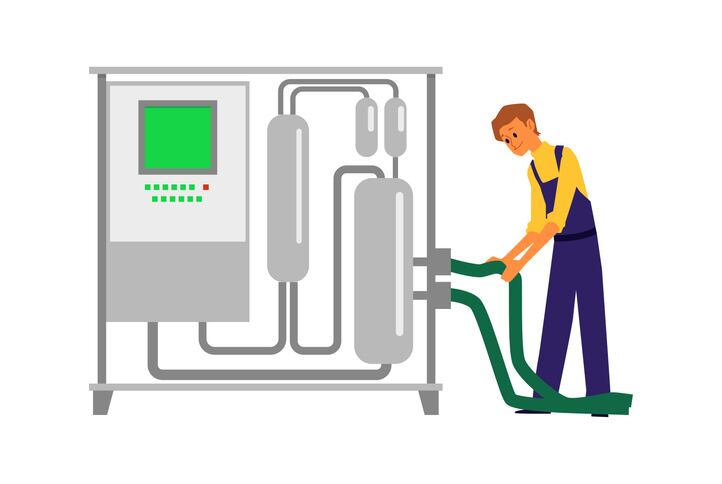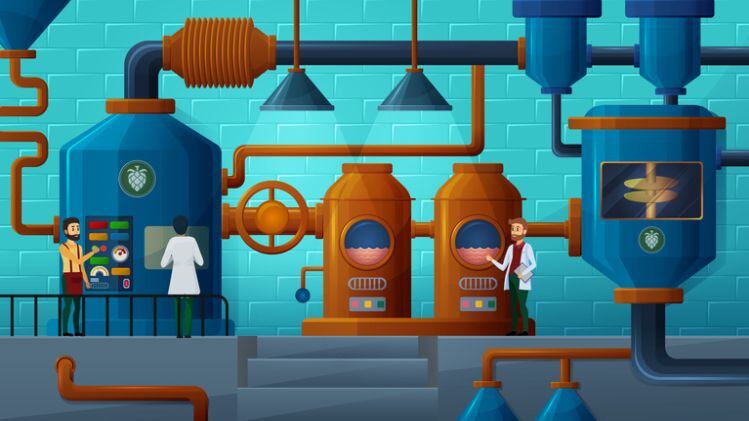The agreement will enable a proof of concept opportunity for Debut Biotech’s cell-free platform, which will be used to create natural ingredients for use in personal health, food, and lifestyle products with DSM, which has extensive experience in enzyme production and working with microbial fermentation systems on an industrial scale.
"For the time being, we’ll be entering into a proof of concept study with Royal DSM to prove the scalability and efficacy of our approach for certain high value ingredients they’re focused on," said Debut Biotech CEO Dr Joshua Britton, who co-founded the company in 2019 with Dr Greg Weiss (Professor of Chemical Biology at UC Irvine).
"This partnership is specifically focused on the development of certain types of natural products, but I’m afraid that’s all I can share for the time being. We’re confident in the results we’ll deliver and are excited for future opportunities."
'We’re removing the cell and using some of the great things happening inside of it, without the constraints'
So what's so exciting about 'cell-free' biomanufacturing, an approach that Britton predicts could be a "major tool" in the food and beverage market in future?
Right now, you can extract colors, flavors, and bioactives from plants, which can be expensive, inefficient, and not very sustainable if they’re only present in trace amounts; or you can deploy synthetic biology to engineer microbes to express the same ingredients in big fermentation tanks filled with sugary feedstock, said Britton.
But microbial fermentation can’t produce everything the food industry wants, he explained in a recent interview with FoodNavigator-USA: “Many of the great ingredients we find in nature are too complex to be made inside a [yeast/bacteria] cell, so they’re still being extracted from fruits or insects."
'These bio-factories have their drawbacks'
Microbial fermentation systems also present certain challenges including low yields and high purification costs (target ingredients are either secreted into the tank, and require subsequent purification, or locked within the cells, requiring an extraction process), added Britton.
“Bacteria and yeast have been the workhorses of industrial biomanufacturing for years. Unfortunately, these bio-factories have their drawbacks; reaction times can be slow, the product and starting material have difficulty passing through the cell wall, and each cell must be reprogrammed to produce a new molecule. They also use a batch process.”
Continuous production process: 'We don’t need gigantic fermenters'
At Debut Bio, by contrast, Britton is taking some of the machinery of cells (custom-designed enzymes, nature’s tiny biological catalysts) and immobilizing them (essentially fixing them in place) such that they can convert low-value materials such as glucose into high-value ingredients such as antioxidants, natural colors and preservatives, in a continuous process.
This allows Debut Bio to operate across a wider range of conditions (pH, temperature) and allows for metabolic transformations that are not possible in cellular microbial fermentation systems, he claimed.
“Cells have to be kept at a neutral pH, whereas food ingredients harvested from plants often require more variable pHs, but if you try and mimic that process [in a host microorganism] you’ll kill the cell. Cell walls have also evolved over millions of years to keep things in, so some of these more advanced food ingredients that companies want to make get stuck in the wall. By removing the cell wall and potential toxicity issues, we can remove the handcuffs of the cell.
“We also don’t need gigantic fermenters. We flow renewable feedstocks through our [much smaller] reactors and out the other side comes functional food ingredients.”
He added: “We’re removing the cell and using some of the great things happening inside of it, without the constraints. Unlocking that constraint has allowed us to target hundreds of food ingredients. Our dream is that all of these high-end functional food ingredients become accessible at high purity and lower cost.”
'Immobilized' enzymes
While enzymes – which themselves are made from host microbes such as E. Coli or yeasts – are not cheap, Debut Bio has come up with a technique to deploy them more efficiently, he said.
“Once we create the protein [enzyme] once, we don’t need to keep creating it, we can stick it to a bead [to ‘immobilize’ it] and use it and use it again. We chemically bind the enzyme to a resin support so that it will remain attached while the fluid is flowing over the protein. This is in contrast to a non-immobilized enzyme/protein where it is floating around freely in a reactor.
“We do this because we can pack a huge amount of enzyme into a small place and do effective bio-transformations. The enzymes are often also more stable, can be reused (we have reused one for 30 days before), and we don’t have to worry about separating the enzyme from the final food ingredients.”

“We’re excited to partner with Debut Biotech, and are thrilled to see how their cell-free method can support DSM’s role as a leader and innovator in the specialty food and nutritional ingredients market. The biomanufacturing of natural products has the potential to produce high value ingredients that customers are increasingly demanding.”
Ross Zirkle, director, biotechnology innovation, DSM
'We’re going after an ingredient class that people have said can’t be done'
Some companies such as Conagen are already using enzymes in bioconversion processes to convert whole stevia extracts into higher-value, better-tasting, more scarce steviol glycosides such as Reb M.
But Debut Bio is just taking this a step further, using enzymes for more complex and intricate bio-conversions that mimic complex metabolic pathways found in plants and other organisms, such that you don’t have to start with a still-expensive plant extract, but could start with a cheaper feedstock, said Britton.
“We’re going after an ingredient class that people have said can’t be done [via biosynthesis], so things like phytonutrients that are still cultivated [from plants]; ingredients that typically can cost more than $1,000/kilo.”




